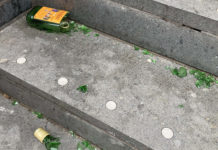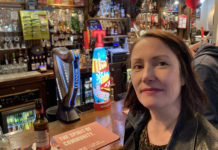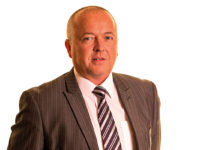PUBS around the country were teeming with Tartan Army foot soldiers last weekend as Scotland began its qualification campaign for the World Cup in Brazil in 2014.
The next day, many outlets will have enjoyed an unscheduled boost as Andy Murray triumphed in the US Open (though quite how many will have been licensed for the full duration of the Scot’s epic New York dual with Novak Djokovic I couldn’t be sure!).
I mention these events not to indulge my love of sport in print, but to illustrate how driven the pub trade now appears to be by major events – and not just sporting, but musical and cultural too. The point was made to me last week by John Gemmell, sales chief for Heineken in Scotland, when, with SLTA boss Paul Waterson, we visited some of Scotland’s best sports pubs for the 2012 SLTN Awards. It has also been highlighted in new research commissioned by Molson Coors and Sky (see page four).
In the outlets we visited for our Year of Sport award, business was to a very large extent built around the TV sport schedule. Football dominated the agenda, but there was also evidence of operators harnessing golf, rugby, tennis, rugby, boxing, tennis and F1 to drive footfall.
What was especially impressive was how hard these outlets worked to maximise the viewing experience for their customers.
Significant investment is made in the trade not just in buying the rights to services like Sky, Racing UK and Box Nation, but in multiple 3D and HD screens. Fixtures are marketed through electronic databases and social media sites, flags and bunting are thrown up to add to the atmosphere for big international football and rugby games, and often free pies are wheeled out at half-time.
In the very best sport-led pubs, the experience provided is only slightly inferior to the real thing.
But there are ways in which big events are adeptly exploited by operators beyond football.
Concerts by major touring acts, from Take That to the Rolling Stones, in stadiums and conference centres, draw people from far and wide to the host cities, boosting hotel room occupancy and trade in bars and restaurants.
Glasgow, Edinburgh and Aberdeen have already seen the benefits such events bring to their cities.
Then there are the opportunities brought to the hospitality industry by international campaigns promoting Scottish tourism. 2009’s Homecoming campaign, staged to commemorate the 250th anniversary of Robert Burns’ birth, was deemed to have been so successful in convincing ex-pats to ‘come home’ to Scotland that a second is being planned for 2014.
Indeed, with 2014 also the year of the Commonwealth Games and the Ryder Cup in Gleneagles, there are hopes it could be an even better year for the tourism sector.
I accept the fate of a licensed business will not depend on key English Premier League games or how often the likes of Rod Stewart rolls into town. But operators who know how to exploit such events to the full are at least giving themselves a fighting chance.























